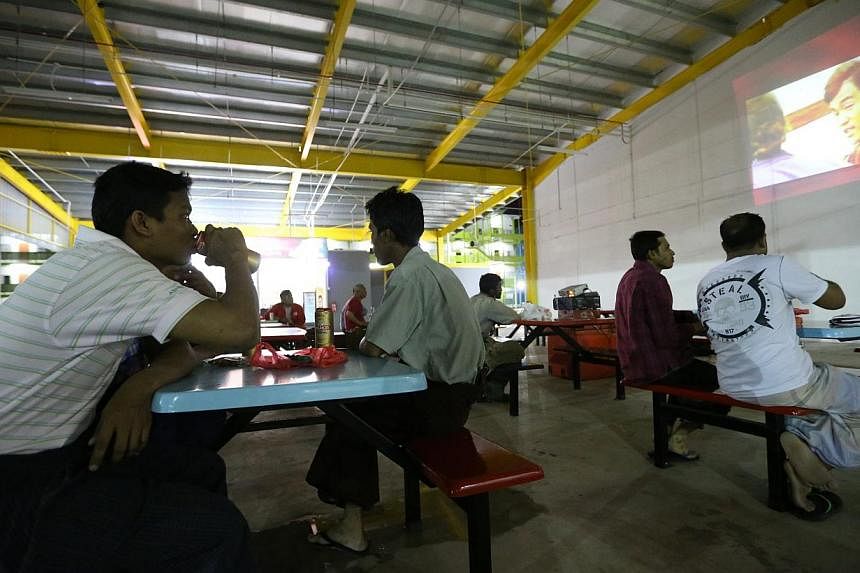SINGAPORE - Nine in 10 foreign workers are satisfied with working in Singapore, although there is room for improvement, especially in terms of housing, rights and providing payslips, said a new survey by the Migrant Workers' Centre (MWC) and the Ministry of Manpower.
A sense of security, good pay and good working and living conditions were commonly cited reasons as to why most of the 3,500 work pass holders and 500 S' pass holders would recommend Singapore as a place to work.
But compared with 2011, when a similar survey was done, more workers said that expensive employment agency fees, poor working and living conditions were why they would not recommend Singapore.
The results were released at a MWC event to celebrate International Migrants Day on Sunday. The centre is a tie-up between the National Trades Union Congress and Singapore National Employers Federation.
Minister for Manpower Tan Chuan-Jin said over the next few years there will be more large purpose-built dormitories with facilities such as minimarts, ATMs and outdoor and indoor gathering spaces to reduce the need of workers to travel to meet their needs. Recreational centres will also be built for socialising purposes.
The survey also showed that most work pass holders, excluding Malaysians, received their principle in-approval letters in English. Some 21.3 per cent received letters in their native languages while 4 per cent did not get any such letter. This letter contains information like the worker's occupation and basic monthly salary.
The Ministry will issue reminders to all employers that it is mandatory to send these letters, including a native language copy, so that workers can understand and agree to these conditions while still in their home countries, Mr Tan said. Failure to do so will lead to penalties with a maximum $10,000 fine, he warned.
Compared with 2011, foreign workers were less likely to be aware of certain employment laws, for instance, that they are not allowed to work for another employer or that they can claim compensation if they suffer disabilities. They were also less likely to receive a physical record of their salary payments.
MOM has committed to make it mandatory in 2016 for employers to provide itemised payslips, spelling out basic salary, total allowances, deductions made and key terms of employment, said Mr Tan.

